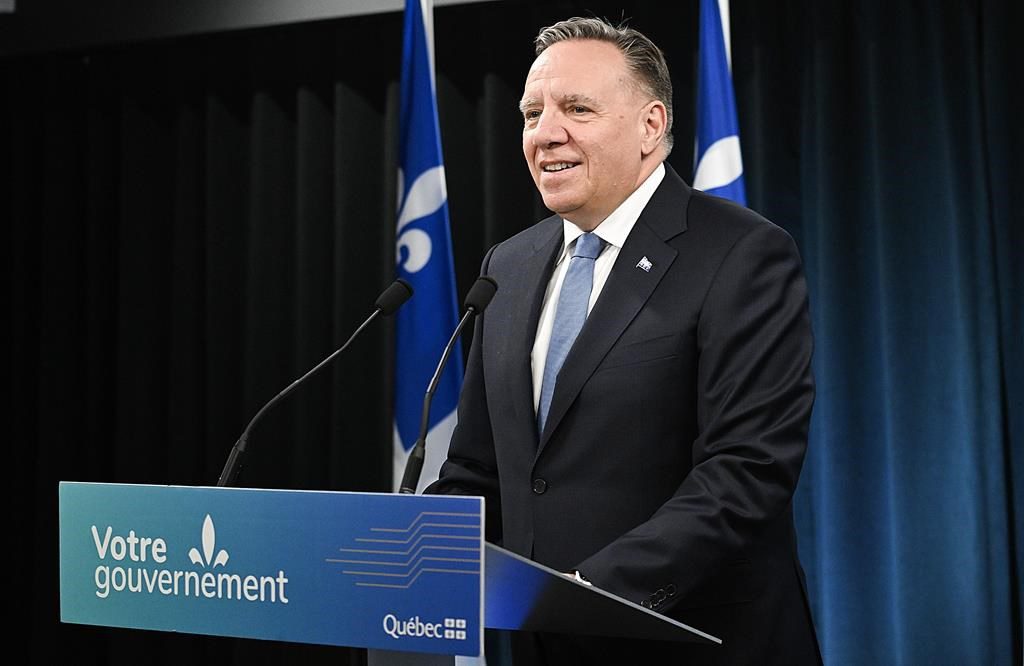This content is restricted to subscribers

The views, opinions and positions expressed by columnists and contributors are the author’s alone. They do not inherently or expressly reflect the views, opinions and/or positions of our publication.

This content is restricted to subscribers
The views, opinions and positions expressed by columnists and contributors are the author’s alone. They do not inherently or expressly reflect the views, opinions and/or positions of our publication.

It’s been percolating for quite some time, despite the pandemic. Language has always been a political football in Quebec and issues have been flaring up over the past few months. François Legault’s CAQ government, not being interested in seeing a revival of the PQ, decided to go ahead with the first major reform in 25 years of Quebec’s language laws and strengthen the Charter of the French language, as set by the infamous Bill 101.
In nationalist circles, the perception has been that over time, the Charter had been weakened by courts’ decisions and by tweaks made by successive Quebec governments. To dissuade court challenges, Bill 96 is declaring from the get go that the notwithstanding clause will be invoked. For which parts of the Bill, you may ask? For all of it, stated Minister Simon Jolin-Barrette, who tabled Bill 96 on May 13th.
Just like with Bill 21 on religious symbols, the CAQ government is signalling that their new legislative proposal is going against the Canadian Charter of Rights. They know it and they do not want to waste time with numerous legal challenges. It won’t dissuade everyone, mind you, as we have seen with Bill 21.
Premier Legault labelled the Bill as solid, necessary and reasonable. Without going through its 24 different measures, Bill 96 aims to regulate the use of French in small businesses with more than 25 employees, restrict access to English-speaking CEGEPs, streamline French learning for immigrants and guarantee services in French to consumers.
Politically, it is a magnificent play. Cunning, even. At the National Assembly, the opposition is neutered. The Quebec Liberals, already mostly reduced to anglo ridings, have nothing to gain in franco ridings by posing themselves as strong defenders of the anglo minority. Instead, they will embrace what they now call a consensus for the preservation and sustainability of the French language. Quebec Solidaire is criticizing on the margins but is supportive in principle. The PQ is trying to raise a storm, but their lead argument of “it doesn’t go far enough”, is hardly enough to create an uproar outside of its ever shrinking voter base.
In Ottawa, the reaction has been prudent and measured. Justin Trudeau knows that if he were to engage in a language war, he would bid adieu to regaining a majority in the next election: the Bloc Québécois is salivating at that possibility. For the Liberals, just like their provincial cousins, wearing their traditional cape of defenders of the anglo minority has no electoral upside and limited downside in Quebec. Liberal strategists can’t imagine who else Anglo-Quebecers would vote for anyway. Especially since the Conservatives are onside with the Bill and the NDP is unlikely to base its Quebec strategy on becoming the champions of the anglo minority. An opening for a new Equality Party, perhaps? Or maybe the Maverick Party would consider stepping up?
These champions, if they are to rise up, may cut their teeth on the municipal front. If adopted, Bill 96 will strip the bilingual status of Quebec municipalities that currently have it if less than 50% of their population is of English maternal language. There is, however, a way to avoid that. Municipal councils can adopt a resolution to preserve their cities’ bilingual status within 120 days of the bill coming into force of law.
Depending on when the Bill is adopted, the timing could set the table for potentially explosive and divisive municipal elections in Quebec, scheduled for November. It is not hard to imagine PQ-friendly candidates running on a platform to make French the sole official language in their town. They are dying for a fight about French’s decline. This would no doubt trigger a mobilization of the anglo minority. Explosive, you say? We’ve been in that movie before.
Federally, the real political trap is about a symbolic move, as is often the case on these issues. A short passage of Bill 96 seeks to amend the Constitution Act of 1867 so that it specifies that Quebecers form a nation, that French is the only official language of Quebec and that it is also the common language of the Quebec nation.
The CAQ says it can proceed unilaterally, without asking permission from the House of Commons, the Senate and the other provinces, by using section 45 of the Constitution Act, which says that a legislature has exclusive jurisdiction to modify the constitution of its own province – which is Part V of the Constitution Act of 1867. It would be quite a coup!
After all these years and all these rounds of Constitutional negotiations, could it have been that simple all along? Doubtful. The recognition of French as the only official language of Quebec in the Canadian Constitution will no doubt lead to constitutional challenges. For instance, article 133 of the Constitution Act states clearly that English may be used in the Debates of the Quebec Legislature and in any of the Quebec Courts. Similarly, Quebec laws and court rulings must be published in English as well as in French.
How does one square that circle? The most likely route would be a modification under article 43, which would then require the approval of Ottawa. This is the kind of political process that led to the rise of the Reform Party.
Photo Credit: CBC News
The views, opinions and positions expressed by columnists and contributors are the author’s alone. They do not inherently or expressly reflect the views, opinions and/or positions of our publication.